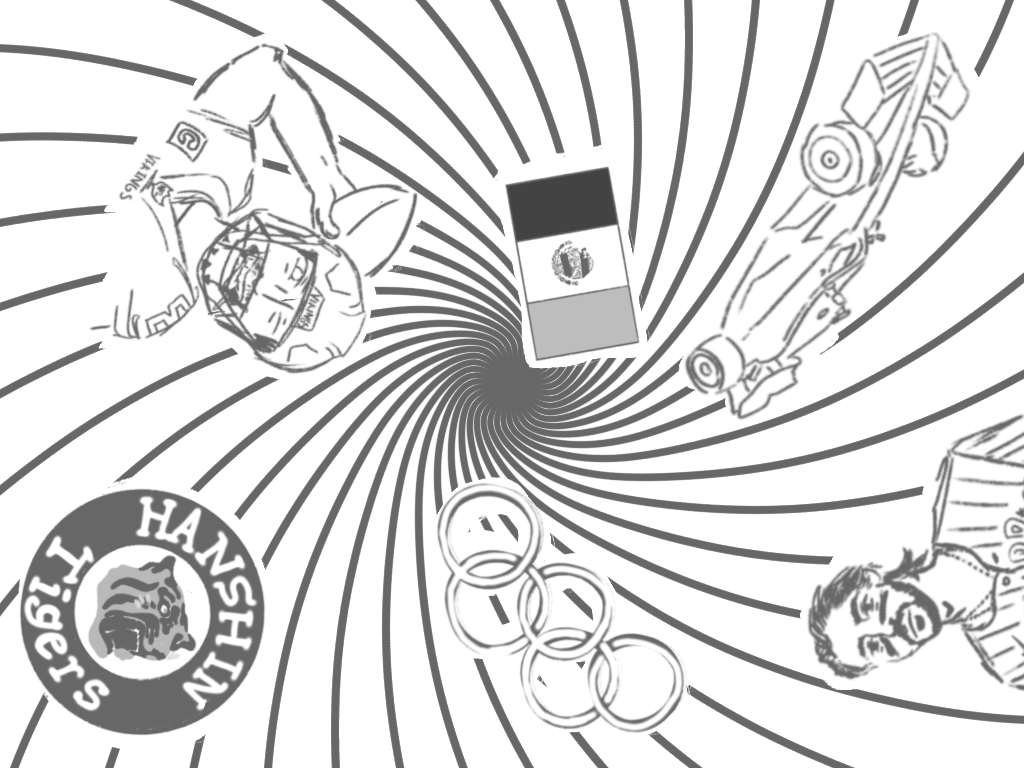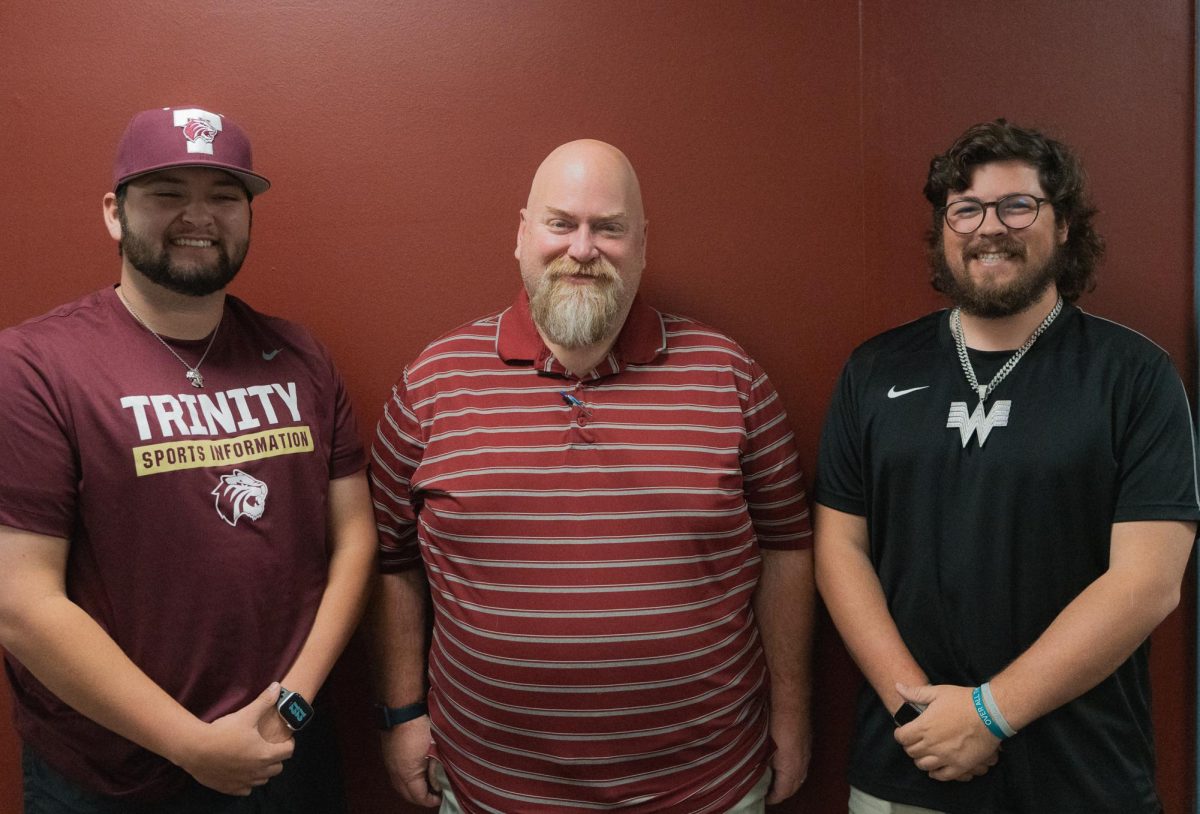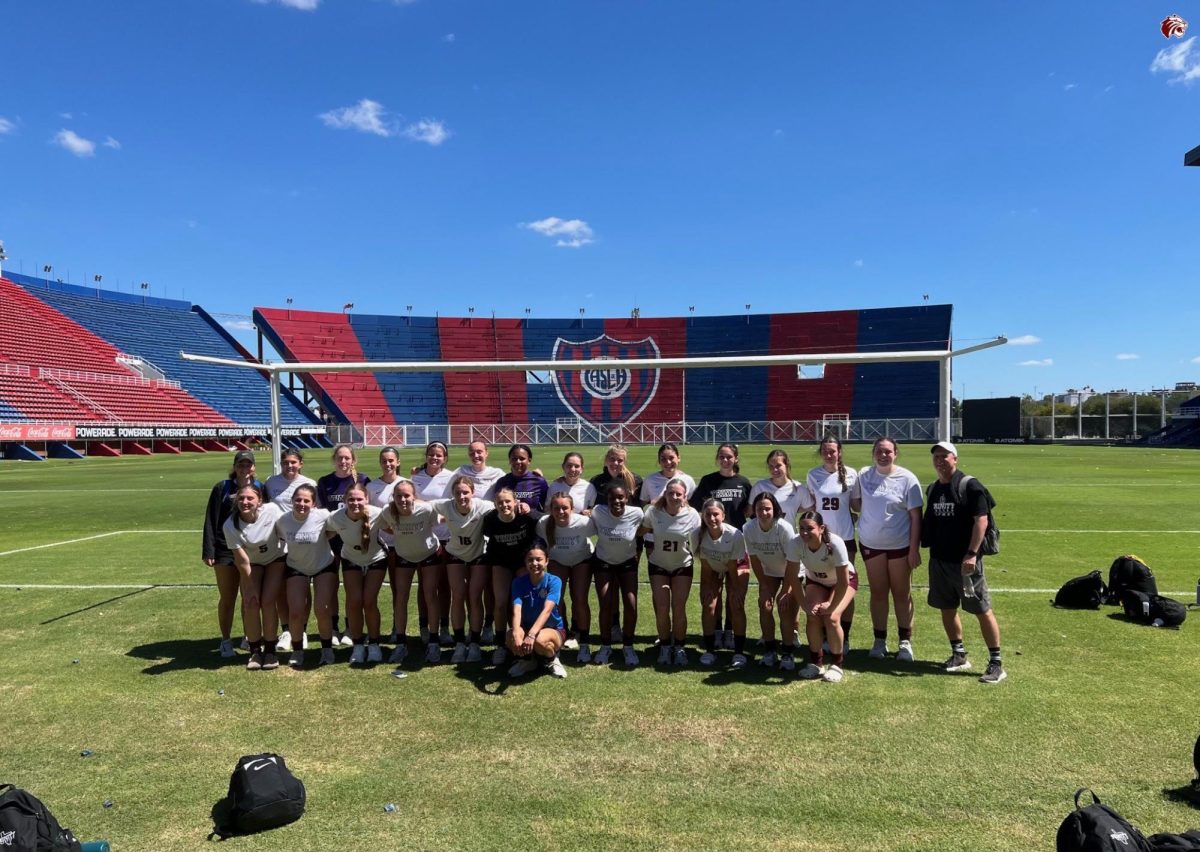For years, teams have found any and every way to explain their losses: a gust of wind blowing a ball wide, loose turf causing a player to trip or a simple case of yips at the worst moment. However, for some, seeing athletes fail at inexplicable times can’t be explained by any natural phenomenon. When the impossible becomes reality, there’s sometimes only one explanation that fans can jump to: The curse.
One of the most famous curses in sports history is the 40-year Olympic curse, which most recently reared its head in 2020. In March 2020, at the height of the COVID-19 pandemic, Japan’s finance minister called the Olympics “cursed” due to the poor timing of the pandemic. Tokyo was scheduled to host the 2020 Olympics, which were pushed back to 2021. This followed a surprising trend of the Olympics suffering catastrophes every 40 years. In 1980, 66 nations led by the United States boycotted the Olympic Games in Moscow, Russia, after the Soviet Union invaded Afghanistan. Forty years prior, in 1940, the Olympics (also scheduled to take place in Tokyo) were canceled due to the outbreak of World War II. While it is an odd phenomenon, what could upset the 2060 Olympic Games remains to be seen.
Some people might have a bit of dark magic floating around them. Last year, I discussed the abysmal timing of Philadelphia Phillies right fielder Nick Castellanos. In addition to his famous “Deep drive to left” home run in 2020, he continued his impeccable form this season with a two-run homer (to make it a 4-0 ballgame) on Sept. 11 earlier this season. This came in addition to having five home runs in 12 at-bats in the immediate aftermath of the Oct. 7 attack in Israel, further confirming that world tragedies only fuel him.
Another man with a more unfortunate curse is current Atlanta Falcons quarterback Kirk Cousins. In his 12th season in the NFL, Cousins has been notoriously poor under the lights of primetime games. Despite possessing an all-time career record of 80-70-2, his primetime record sits at 13-20 — not including a 1-3 playoff record. However, Cousins has recently broken his run of bad luck as an Atlanta Falcon. Earlier this season, he threw for over 500 yards in an overtime victory on Thursday Night Football, perhaps putting the curse behind him as he transitions to his new team.
In some cases, curses can affect an entire city, such as Philadelphia, PA. The curse, nicknamed “The Curse of Billy Penn,” began in the 1980s after the Philadelphia 76ers won the 1983 NBA championship. In 1987, a building was constructed that was taller than the statue of William Penn on top of the Philadelphia City Hall. No sports teams in Philadelphia won a title after that 1983 team for over three decades, leading to the belief of the curse’s existence. In 2007, ironworkers welded a small statue of William Penn to the top of the new Comcast Center to break the curse. The Philadelphia Phillies won the 2008 World Series. In 2017, Comcast wanted a new building, so ironworkers did the same thing, leading to a 2018 Super Bowl title for the Philadelphia Eagles. The next time Comcast asks for a new building, remember the statue.
One team that doesn’t want to remember a statue is the Hanshin Tigers, a Japanese baseball team. In the aftermath of the Tigers winning the 1985 Central League pennant, fans threw a statue of KFC mascot Colonel Sanders into the Dōtonbori River. Though their victory was a surprise, their failures in subsequent years left fans blaming the so-called “Curse of the Colonel” until the statue was finally dug out of the river in 2009. The Tigers finally broke their curse in 2023, winning their first title since that 1985 season. The statue was later buried in 2024 due to its condition.
Whether it’s divine intervention or hubris, motorsports aren’t a stranger to curses either. Teams have a habit of running special paint schemes (also called liveries) for just one race, and these one-off liveries can have disastrous consequences. One of the most famous examples of a promotion gone wrong was in the 2004 Monaco Grand Prix. Jaguar Racing was promoting the new Ocean’s Twelve movie by putting a $300,000 diamond in the nose of the car. Neither car finished the race, but the vehicle belonging to Christian Klein was involved in an accident. The diamond on the nose of Klein’s car was lost — presumably in the crash, though it was never seen again. Whether this was a promotional stunt or not, the mystery of the missing diamond remains today.
Of course, some of these so-called curses could be due to bad luck or a strong home-field advantage. The American and Mexican soccer teams have been strong contenders in North America for many years but have always struggled to play each other on opposing soil. In the 29 times that the US has played in front of the hostile Mexican crowd, their record is 1-24-4, with their lone win coming in a 2012 friendly match.
Whether these curses are fact, fiction or silly superstition, there is always a story behind them. Teams rarely fall from the highest highs to the lowest lows and there’s little that fans can do to explain the pain away. Sometimes, it’s best to throw your hands in the air and believe in the unbelievable.






